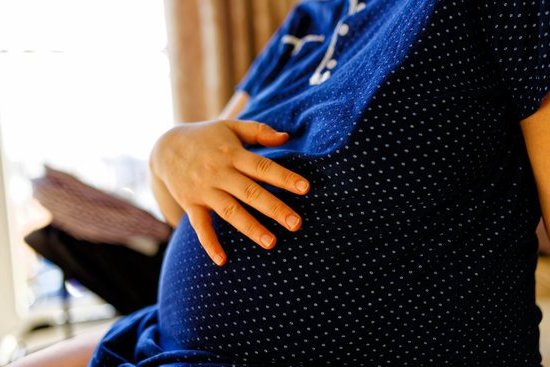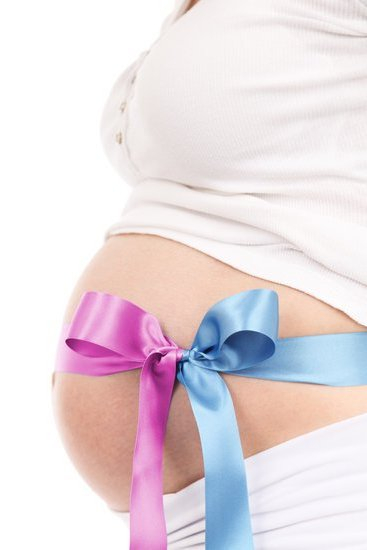Experiencing an abortion can have a significant impact on both the physical and emotional well-being of individuals. It is not uncommon for women to wonder about the possibility of pregnancy after having undergone an abortion procedure. Understanding the signs of pregnancy after abortion is crucial in addressing any concerns or uncertainties that may arise.
After undergoing an abortion, it is important to be vigilant of any unusual symptoms that may indicate a potential pregnancy. While it is normal for the body to undergo changes following an abortion, recognizing certain signs can help individuals make informed decisions about their reproductive health. In this article, we will explore the physical and emotional effects of abortion, as well as delve into the common symptoms that may signal a subsequent pregnancy.
Furthermore, we will discuss the different types of abortions and their potential impact on future pregnancies. Understanding these factors is essential in recognizing how they can affect the likelihood of conceiving again and carrying a pregnancy to full term.
Additionally, seeking follow-up care after an abortion plays a critical role in ensuring one’s overall health and well-being. We will emphasize the importance of post-abortion medical care in monitoring any potential signs of pregnancy and addressing them promptly.
Recognizing the Common Symptoms of Pregnancy After Abortion
It is important to recognize the common symptoms of pregnancy after abortion in order to seek proper medical care and support. While some women may not experience any symptoms, it is crucial to be aware of the potential signs that indicate a possible pregnancy. There are several physical and emotional indicators that may suggest a pregnancy after an abortion.
Physically, some common signs of pregnancy after abortion include a missed period, breast tenderness, nausea or vomiting (morning sickness), frequent urination, and fatigue. Additionally, experiencing light spotting or bleeding, similar to implantation bleeding, could also be a sign of pregnancy.
It is important to note that these symptoms can vary from woman to woman and may not necessarily indicate a pregnancy. However, being attentive to these changes and seeking medical advice is essential if there is a suspicion of pregnancy after an abortion.
Emotionally, some women may experience feelings of disbelief, confusion, or anxiety if they suspect they are pregnant again after having an abortion. It is normal to feel overwhelmed by the possibility of another pregnancy and its implications. Seeking emotional support from loved ones or mental health professionals can help in coping with these feelings and making informed decisions about the next steps.
Finally, it is crucial for individuals who have had an abortion to understand that experiencing some of these symptoms does not automatically mean they are pregnant again. It is recommended to consult with a healthcare provider for proper diagnosis and guidance on the next steps.
| Common Symptoms | Indicators |
|---|---|
| Missed Period | Breast Tenderness |
| Nausea or Vomiting | Frequent Urination |
| Fatigue | Light Spotting or Bleeding |
Understanding the Different Types of Abortions and Their Impact on Future Pregnancies
When considering the impact of abortion on future pregnancies, it is important to understand the different types of abortions available. The most common types include medical abortions (using medication to induce a miscarriage) and surgical abortions (involving a medical procedure to remove the pregnancy). Both types can have varying effects on future pregnancies.
Medical abortions, for example, are generally considered safe and do not typically have long-term impacts on fertility or future pregnancies. However, surgical abortions, particularly those that result in complications such as infection or scarring of the uterus, may pose a higher risk for potential future pregnancy complications.
It is crucial for individuals who have undergone an abortion to consult with a healthcare provider to understand the potential impact on their future fertility and pregnancies. This will allow them to receive personalized medical advice and care based on their unique circumstances.
| Type of Abortion | Impact on Future Pregnancies |
|---|---|
| Medical Abortion | Generally safe with minimal impact |
| Surgical Abortion | Potential for complications affecting future pregnancies |
Discussing the Importance of Follow-Up Care After an Abortion
After undergoing an abortion, it is important to ensure that you receive proper follow-up care to monitor your physical and emotional well-being. Here are some key reasons why follow-up care after an abortion is crucial:
- Monitoring for Complications: Follow-up care allows healthcare providers to assess if there are any potential complications from the abortion procedure. This can include checking for signs of infection, excessive bleeding, or any other adverse effects that may require medical attention.
- Emotional Support: The aftermath of an abortion can have a significant impact on a person’s emotional well-being. Follow-up care can provide an opportunity for individuals to speak with healthcare professionals about their feelings and receive appropriate support or referrals for counseling if needed.
- Contraceptive Counseling: Follow-up care offers the chance for individuals to discuss contraceptive options with their healthcare provider. This is important in preventing future unintended pregnancies and ensuring reproductive health.
Seeking follow-up care after an abortion is not only beneficial for one’s physical health but also for their overall well-being during the post-abortion period. It provides an opportunity to address any concerns or questions that may arise as a result of the procedure, ensuring that individuals feel supported and informed about their reproductive health.
It is essential to remember that each individual’s experience with abortion and its aftermath is unique. Therefore, seeking follow-up care allows healthcare providers to tailor their support according to individual needs and provide personalized guidance for moving forward after the procedure. In the context of possible signs of pregnancy after abortion, receiving follow-up care can also facilitate early detection and management if a subsequent pregnancy occurs.
Exploring the Potential Risks and Complications of Pregnancy After Abortion
After undergoing an abortion, it is natural for women to have concerns about the possibility of becoming pregnant again. There are potential risks and complications associated with pregnancy after an abortion that women should be aware of. It is important to understand these risks in order to make informed decisions about their reproductive health.
Here are some potential risks and complications of pregnancy after an abortion:
- Increased risk of miscarriage: Women who have had one or more abortions may have a higher risk of experiencing a miscarriage in a subsequent pregnancy.
- Uterine scarring: In some cases, abortion procedures can cause scarring inside the uterus, which can affect a woman’s ability to conceive or carry a pregnancy to term in the future.
- Ectopic pregnancy: An ectopic pregnancy occurs when a fertilized egg implants outside the uterus, usually in the fallopian tube. Women who have had a previous abortion may be at increased risk for ectopic pregnancies.
- Emotional impact: Pregnancy after an abortion can bring up complex emotions and feelings of guilt, anxiety, and fear. It is important for women to seek support and counseling if they are struggling emotionally with a subsequent pregnancy after an abortion.
It is crucial for women who suspect they may be pregnant after an abortion to seek medical advice and care. A healthcare provider can offer guidance on managing any potential risks and complications and provide support throughout the pregnancy journey.
Addressing the Psychological and Emotional Impact of a Subsequent Pregnancy After Abortion
Experiencing a subsequent pregnancy after an abortion can bring about a range of psychological and emotional responses for individuals. It is important to acknowledge and address these impacts in order to support individuals through this challenging time.
Feelings of Guilt and Shame
For many individuals, a subsequent pregnancy after an abortion may trigger feelings of guilt and shame. They may find themselves questioning their decision to terminate the previous pregnancy and may struggle with feelings of regret. It is important for individuals in this situation to understand that it is normal to experience these emotions, but also crucial to seek support from loved ones or mental health professionals to process these feelings and work towards finding peace with the past decision.
Fear and Anxiety
The prospect of a subsequent pregnancy after an abortion may also bring about intense fear and anxiety for some individuals. There may be concerns about whether they are emotionally or financially ready for another child, or fears about potential judgment from others. It is important for individuals experiencing these emotions to seek reassurance from supportive friends, family members, or healthcare providers. Additionally, seeking counseling or therapy can help individuals manage their fears and anxieties in a healthy way.
Impact on Relationships
A subsequent pregnancy after an abortion can also have an impact on relationships, particularly between partners. Communication is key during this time, as both partners may be processing complex emotions surrounding the past abortion and the current pregnancy.
It is essential for couples to openly discuss their feelings and concerns with each other, while also considering seeking couples therapy if necessary. This can help strengthen the relationship and provide a supportive environment for both individuals as they navigate this challenging experience.
By acknowledging the psychological and emotional impact of a subsequent pregnancy after an abortion, individuals can take steps towards healing and finding support during this difficult time. It is crucial for those experiencing these emotions to seek help from healthcare professionals or mental health experts in order to address their feelings in a healthy manner.
Exploring the Importance of Seeking Medical Advice for Confirming Pregnancy After an Abortion
After undergoing an abortion, it is crucial for individuals to seek medical advice for confirming whether they are pregnant again. The body may still display pregnancy symptoms after an abortion, or there could be a new pregnancy occurring. Therefore, seeking professional medical advice is the first step in understanding one’s current situation and making informed decisions about their reproductive health.
Why Is It Important to Seek Medical Advice?
Seeking medical advice is essential for confirming pregnancy after an abortion because it provides individuals with accurate information about their reproductive health. A healthcare provider can conduct a physical examination, perform a pregnancy test, and discuss any symptoms or concerns that the individual may have. This personalized care ensures that individuals receive the support and guidance they need to make informed decisions about their future steps.
What Should Individuals Expect During a Medical Visit?
During a medical visit to confirm pregnancy after an abortion, individuals can expect to undergo various assessments. These may include a pelvic exam, ultrasound, blood tests, and discussions about any symptoms or changes in their physical or emotional well-being.
It is important for individuals to be open and honest with their healthcare provider about their experiences and any potential signs of pregnancy after abortion they may have noticed. This information will help the healthcare provider determine the best course of action for addressing the individual’s needs.
Providing Tips for Coping With the Uncertainty and Anxiety of a Possible Pregnancy After Abortion
In conclusion, recognizing the signs of pregnancy after abortion is crucial for individuals who have undergone the procedure. Understanding the physical and emotional effects of abortion can help individuals navigate the potential uncertainty and anxiety that may arise if they suspect they are pregnant again.
It is important to remember that experiencing symptoms of pregnancy doesn’t always mean a confirmed positive result, as these symptoms can also be due to other health-related factors. Seeking medical advice and getting proper confirmation is essential in such cases.
Furthermore, it’s important to acknowledge the psychological and emotional impact of a subsequent pregnancy after abortion. Individuals may experience a range of emotions, including fear, guilt, and anxiety. It’s essential to seek support from trusted friends, family, or mental health professionals when coping with these feelings. Additionally, understanding the different types of abortions and their impact on future pregnancies can provide individuals with valuable insight into their reproductive health.
Additionally, providing tips for coping with the uncertainty and anxiety of a possible pregnancy after abortion can offer much-needed support to those who may be facing this situation. Encouraging open communication about concerns and seeking out professional counseling services can significantly assist individuals in navigating this challenging time. It’s important to prioritize self-care and seek appropriate medical guidance for any suspected signs of pregnancy after an abortion.
Frequently Asked Questions
How Quickly Does hCG Drop After Abortion?
The hCG levels in the body can drop rapidly after an abortion, typically within a few days to a week. However, it can take several weeks for the hormone to fully leave the body.
How Long Does It Take for Hormones to Balance After Abortion?
After an abortion, it may take some time for hormone levels to balance out. This could vary from person to person, but generally, it can take a few weeks to a couple of months for hormones to regulate again.
How Do I Know Am Ovulating After Abortion?
Ovulation after an abortion can occur as early as two weeks after the procedure, although this may vary from person to person. Signs of ovulation, such as changes in cervical mucus and basal body temperature, can help indicate when ovulation is happening.
Tracking ovulation through methods such as ovulation predictor kits or fertility awareness can also help determine if and when ovulation is occurring.

Welcome to my fertility blog. This is a space where I will be sharing my experiences as I navigate through the world of fertility treatments, as well as provide information and resources about fertility and pregnancy.





